Python stands out as one of the most beginner-friendly programming languages. In the present day, developers use Python for AI and machine learning, scripting, SEO, data analysis, and integration across diverse platforms to create optimal business applications.
Developing an Android app with Python is beneficial for both developers and businesses. Because Python’s numerous frameworks and libraries make app development easier and faster. This is just one of the significant advantages that lead developers to choose to build Android apps with Python.
In the article below, let’s explore the 5 advantages of Android programming with Python to prepare for using Python in developing your business’s next application.
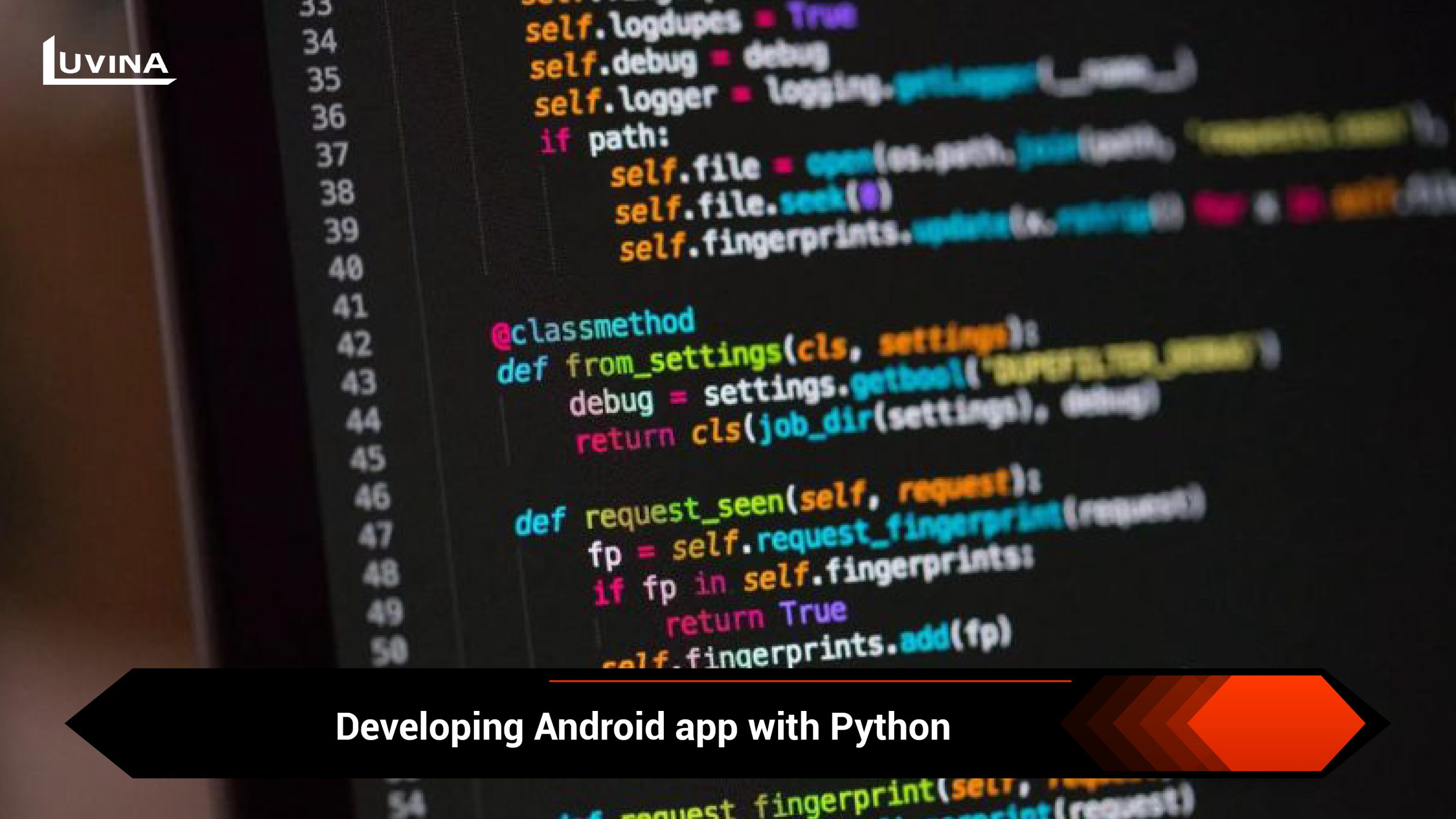
Advantages of Python-Powered Android
According to a StackOverflow survey in 2022, Python is one of the most widely used languages by developers. And here are 5 reasons why.
1. Reduced time-to-market
In app development, time-to-market plays a crucial role. The faster you release your app to the market, the more advantage you gain over competitors. Typically, programming languages run code through a compiler, which takes time for the application’s output. Python lacks a compiler and directly executes the app through an interpreter. As a result, writing Android apps in Python is faster and more reliable, shortening the development time to quickly launch in the market.
2. High ROI with low costs
Android programming with Python has the potential to reduce app development costs in various aspects.
- – It speeds up project timelines, optimizing budgets.
- – The natural open-source nature and extensive library ecosystem help cut licensing fees.
- – Minimalistic syntax and readability help minimize errors, reducing the cost of bug fixes.
All these factors contribute to cost savings for businesses in Python Android app development, resulting in higher ROI.
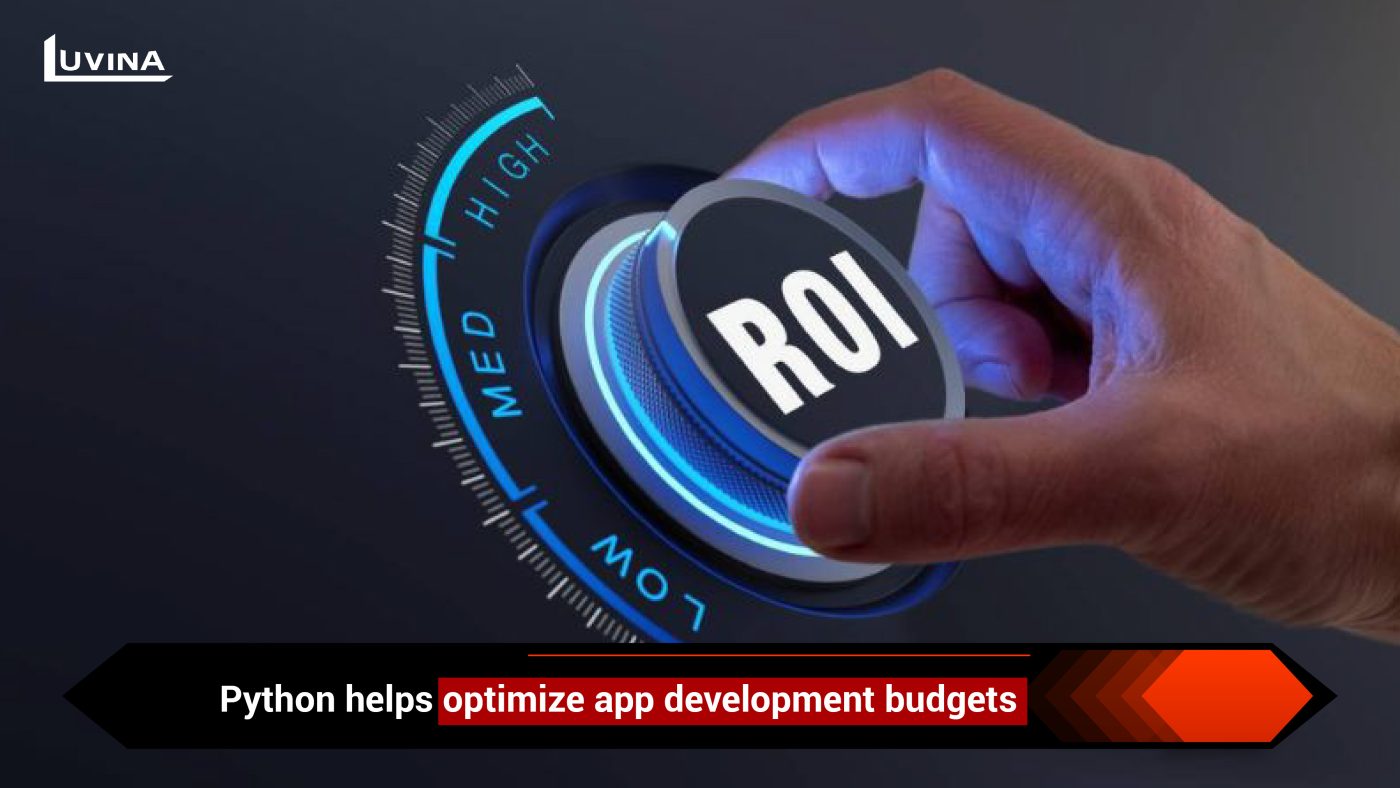
3. Enhanced security
Thanks to its strong libraries, frameworks, and best practices, Python enhances security by continuously updating, patching vulnerabilities, and reducing the risk of attacks. Python’s cryptography libraries also encrypt data for secure transmission. Its clear syntax further promotes secure code, making security audits and reviews more effective.
4. Versatility and scalability
Python’s flexibility shines in its ability to cater to diverse business needs, from Android app development using Python to machine learning and data analysis. With this adaptability, developers don’t need to master multiple languages during the app development process. Furthermore, Python supports microservices architecture and cloud deployment, allowing developers to build Android apps with Python without rewriting extensively.
5. Customization
Python’s customization capabilities empower developers to tailor solutions to precise requirements.
Python’s open-source nature grants access to the language’s source code, enabling modifications and adaptations to suit unique project needs. This customization extends to frameworks like Django and Flask, allowing developers to mold these tools to their app’s specific functionalities.
Additionally, Python’s many libraries and modules can be integrated and customized to add or modify features as needed. This adaptability ensures that apps can be finely tuned to match business goals, user preferences, and evolving market demands, making Python an ideal choice for creating tailored and distinctive software solutions.

Best Tools Used by the Android App Development Services
Python Android app development has become more exciting and easier than ever thanks to the tools/ frameworks that help you overcome challenges during the mobile app development process. Below are 5 tools for developing Android apps with Python that will greatly save developers a lot of time.
1. Beware
BeeWare is an effective tool for developing Android apps using Python. You can write apps in Python with BeeWare and deploy them across multiple platforms without rewriting them in different programming languages. Moreover, you can easily use and update modules regularly as needed with BeeWare.
2. KIVY
If you’re looking for a tool for Android app development using Python, KIVY is one of the best choices. Released in 2011, KIVY can run on various operating systems. It has an open-source Python library that lets you create cross-platform apps with GUI. Additionally, KIVY allows you to bring forms, text entries, and various GUI components from one platform to another. Thanks to this, you can easily convert Python to Android apps using Kivy.
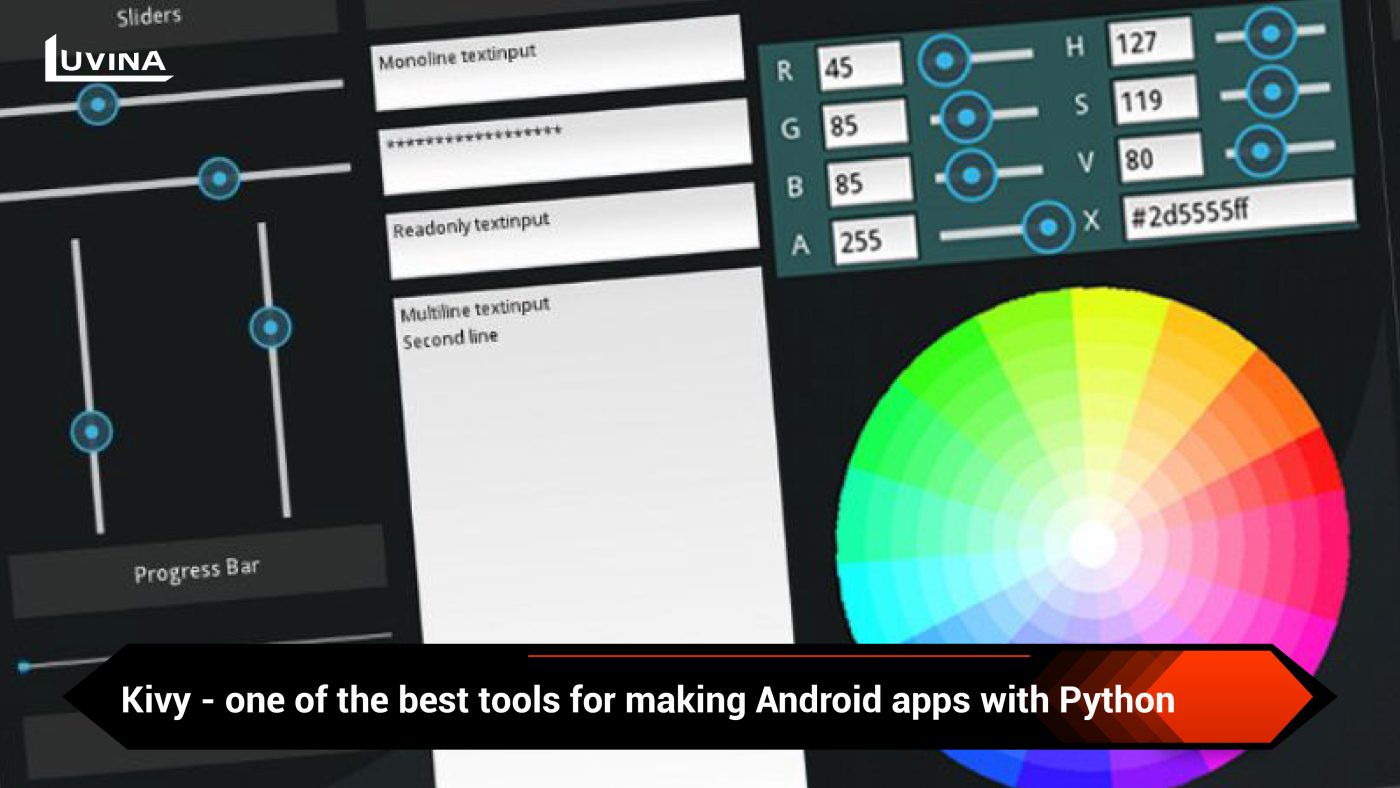
3. QPython
To run Python projects and scripts on Android devices, you’ll need the assistance of the best Python app for Android QPython. This is an ideal framework for developing Android apps on Python, as it includes a library, interpreter, editor, and SL4A libraries. You can also load scripts from here and use them to create your native apps.
4. PySide
PySide is a Python binding of a cross-platform GUI toolkit. It’s seen as the perfect blend of high-level programming language and GUI.
Built on the open-source PySide platform, you can freely share ideas without needing permission. PySide also enables developers to write applications once and deploy them on different operating systems without rewriting the source code.
5. Chaquopy
Chaquopy is a plugin for the Android Studio Gradle-based build system. It allows you to use both Python and Java interchangeably. Currently, it’s one of the best tools for developing Android applications using Python.
Chaquopy’s APIs support a wide range of features. With Chaquopy’s assistance, you can write a part or the entire application in Python.
Types of Apps Which Can Be Built Using Python
You can create numerous applications with the help of Python, including some of the applications mentioned below.
1. Blockchain applications
Thanks to Python, developing blockchain applications becomes much easier and more convenient. By utilizing frameworks like Flash, developers can use HTTP requests to connect with the blockchain over the internet while creating endpoints for distinct blockchain functions.
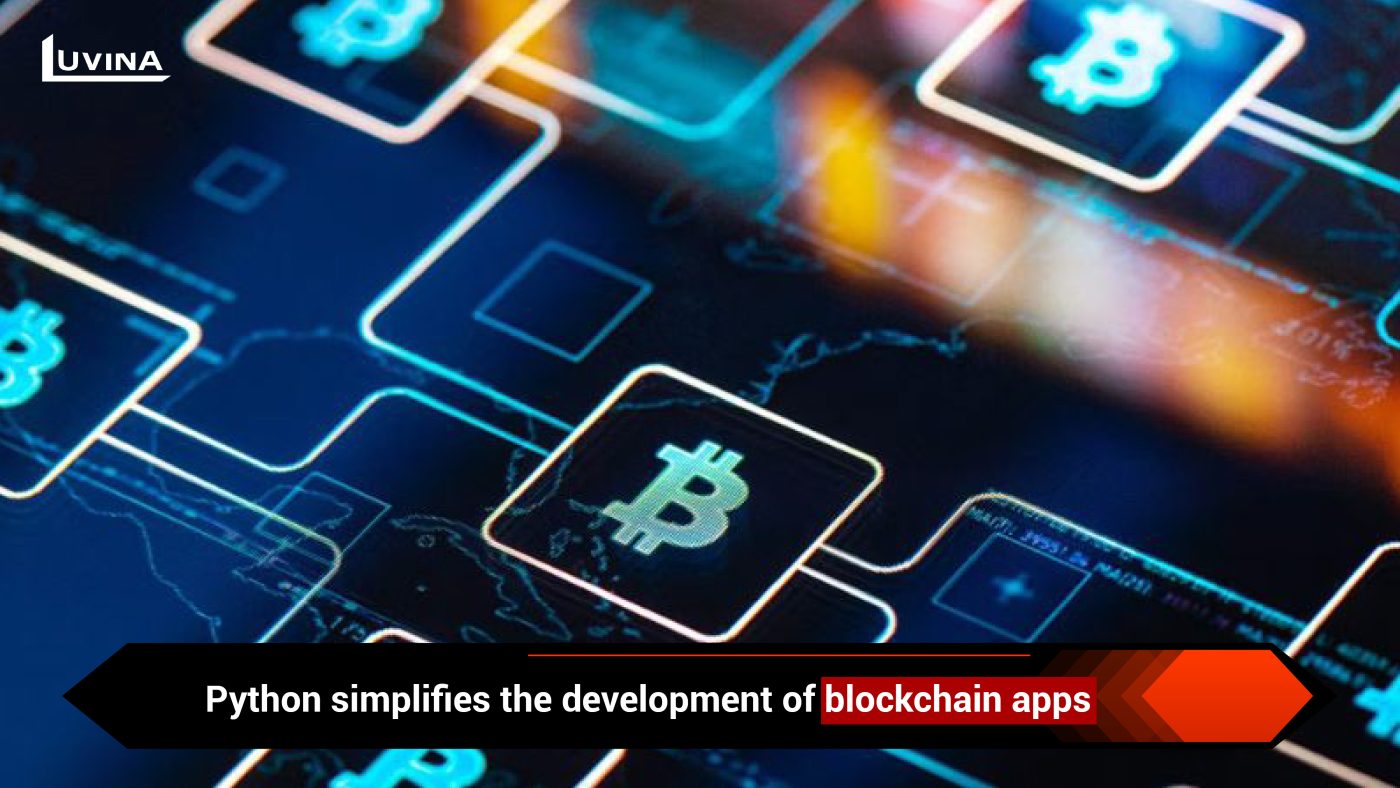
2. Command-line applications
Python is the ideal language for developing console command-line applications thanks to its read-eval-print-loop (REPL) feature. This feature allows developers to evaluate the language and discover new possibilities.
Furthermore, since Python is a widely used programming language globally, software development companies can access free Python libraries to build command-line applications.
3. Audio and video applications
Developing Android apps with Python allows for creating music along with numerous other video and audio applications. Python can be used to analyze audio and video content on the internet. In particular, some Python libraries like OpenCV and PyDub are also highly useful in app development.
4. Robotics
A commonality among experts and enthusiasts in the field of robotics is their fondness for the Python programming language. Thanks to its compatibility with the Raspberry Pi hardware platform, Python is regularly used to conduct many daily creative innovations at an affordable cost.
5. Game app development
With its rich features and extensible utilities, Python is the favored programming language for game developers. Python enables developers to quickly create and test game prototypes. Moreover, it’s used to create game design tools that support various tasks during app development, such as level design.
There are many have been developed with Python such as Battlefield 2, EVE Online, World of Tanks, and Disney’s Pirates of the Caribbean, …
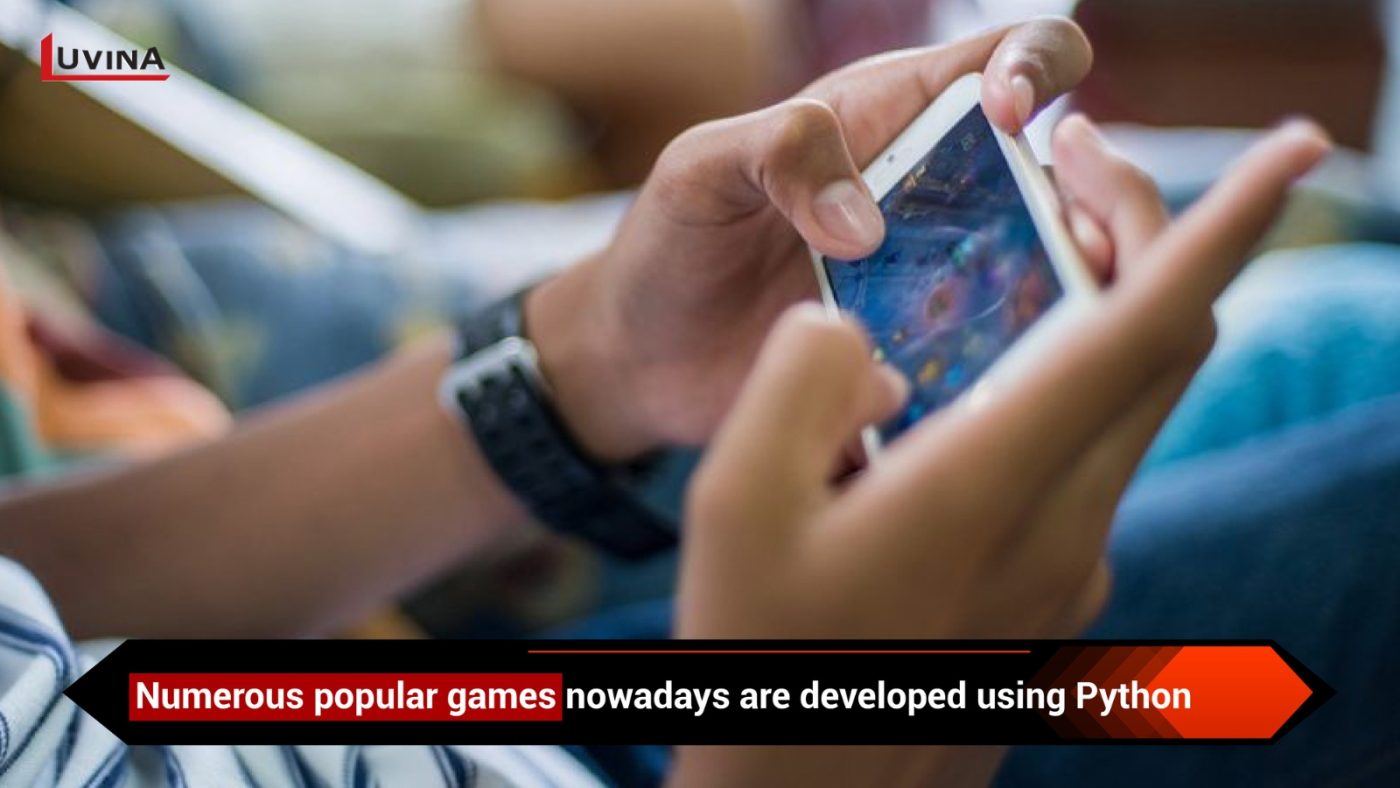
6. Famous applications built using Python
The following 5 famous applications written in Python might surprise you:
- Instagram: Instagram stands as one of the world’s most renowned social media platforms. On Instagram, you can capture videos, snap photos, enhance them with filters, and share them with friends and followers. At present, Instagram holds a prime position as one of the most successful applications built with Python.
- Pinterest: Pinterest is a social media platform centered around images, offering the ability to explore, save, and share images, GIFs, and short videos. With a global user base exceeding 300 million, Pinterest is mainly utilized for connecting with others and exchanging images.
- The Pinterest team chose Python and the Django framework to develop their application and website. Python and Django play a crucial role in optimizing the user experience on Pinterest by quick push notifications, updating images in real time, handling large content volumes, and managing rapid user growth.
- Spotify: Currently, Spotify is one of the top applications that use Python. Speed is paramount for Spotify, which is why its team chose Python. Python assists Spotify in managing various features like Radio and Discover, based on individual user music choices.
- Dropbox: Dropbox is a well-known website that specializes in providing cloud storage and synchronization services. Using Python gives Dropbox the power of readability, strong support, and memorability. Python also provides rapid and continuous development cycles for swift deployment, testing, and adoption of numerous new features.
- Uber: Uber is a well-known technology-based ride-hailing application that uses three main languages to build its auxiliary maps, and Python is one of them. Uber employs Python due to its ability to execute any complex code quickly. This programming language also helps Uber ensure seamless communication between drivers and passengers.
- Reddit: Reddit is a renowned social news aggregation and discussion platform where members can post text, links, and images. Apart from supporting 89 different languages, Python, with its “batteries included” method, assists Reddit in managing numerous complex features and the immense workload.
- Facebook: Python is a big part of Facebook’s technology stack, constituting 21% of its codebase. This language is utilized in several essential Facebook services, such as managing numerous concurrent connections. Additionally, it’s Python that ensures timely updates for users’ Facebook news feeds.
Conclusion
Python is a strong tool for making Android apps and other mobile applications. It’s quick to develop, can adapt well, works smoothly across different platforms, and offers a wide range of libraries. All of these factors together take Android app development with Python to new levels of potential.
If you’re seeking a partner to build an Android app with Python, Luvina is the best choice for you. Not only do we possess abundant resources, but we also have experienced experts proficient in Python to create the most suitable app for your needs.
Luvina eagerly looks forward to accompanying you on the journey of creating the finest applications. Contact Luvina now for more details.









Read More From Us?
Sign up for our newsletter
Read More From Us?
Sign up for our newsletter